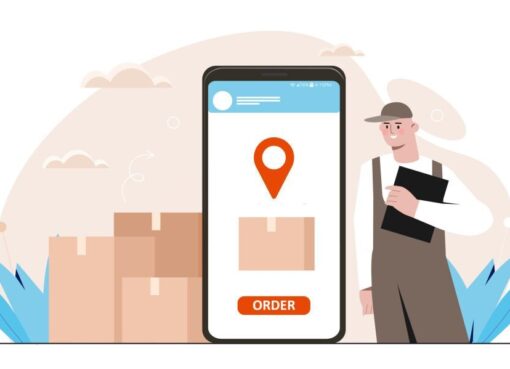Professional networking goes beyond exchanging business cards and LinkedIn connections. When done properly, It can profoundly impact your career advancement, business growth, and personal development.
Contents
- 1 What is professional networking?: Why It Matters
- 2 Setting Professional Networking Goals
- 3 Read also: Excellent mental health programs for disaster and trauma training
- 4 Professional Networking Etiquette: Dos and Don’ts
- 5 The Elevator Pitch: Crafting Your Introduction
- 6 Example Elevator Pitch
- 7 Effective Conversation Starters
- 8 The Art of Listening
- 9 Professional Networking for Introverts: Strategies for Success
- 10 Professional Networking Follow-Up: Turning Connections into Opportunities
- 11 Overcoming Networking Challenges
- 12 Additional Networking Resources
- 13 Conclusion
What is professional networking?: Why It Matters
Professional networking matters for several compelling reasons:
Professional networking is the deliberate process of building and nurturing relationships with individuals in your industry, field, or community for mutual benefit. It involves connecting with colleagues, peers, mentors, industry experts, and potential collaborators. The main aim is to exchange information, insights, and support related to your professional goals.
- Career Advancement: Networking opens doors to job opportunities, career advice, and mentorship. It can help you discover unadvertised job openings, gain valuable insights into your industry, and receive guidance from experienced professionals.
- Business Growth: For entrepreneurs and business owners, networking is crucial for acquiring new clients, partners, and collaborators.
- Learning and Knowledge Sharing: Networking provides a platform for continuous learning and knowledge sharing. By connecting with peers and experts, you can stay updated on industry trends, best practices, and emerging technologies.
- Support and Encouragement: Your network can serve as a source of emotional support during challenging times. Whether you’re facing a career setback or celebrating a milestone, your professional connections can offer guidance, encouragement, and a sense of belonging.
- Diverse Perspectives: Networking exposes you to diverse perspectives and viewpoints. Interacting with individuals from different backgrounds and experiences can broaden your horizons, spark creativity, and lead to innovative solutions.
- Building a Personal Brand: Your network can help you build a positive personal brand and reputation within your industry. When others in your network trust and respect you, it can enhance your credibility and influence.
- Staying Informed: Networking keeps you informed about industry trends, market shifts, and technological advancements. This knowledge helps you adapt to changes and remain competitive in your field.
- Problem Solving: When faced with challenges or complex problems, your network can be a valuable resource for brainstorming solutions. The collective expertise of your connections can provide fresh insights and potential solutions.
Setting Professional Networking Goals
While some people believe that networking just happens, I believe that it is deliberate and intentional. For this you will need to have a clear objective and a SMART goal. These questions will help you define your goal.
- Identify Your Target Audience
Determine who you need to connect with to achieve your goals. Are you seeking mentors, industry peers, potential clients, or partners? Your goals will influence the type of individuals you need to network with.
- Quantify Your Goals
Make your networking goals measurable. Instead of a vague goal like “expand my network,” set a specific target, such as “attend two industry conferences this year” or “connect with five potential clients each month.”
- Set a Timeline
Establish a timeframe for achieving your networking goals. Setting deadlines creates a sense of urgency and keeps you accountable. For example, “Within the next six months, I will secure two mentorship connections.”
- Create Action Steps
Break down each goal into actionable steps. For instance, if your goal is to attend industry conferences, steps may include researching conferences, registering, and preparing a list of people to connect with at the event.
Read also: Excellent mental health programs for disaster and trauma training
Professional Networking Etiquette: Dos and Don’ts


Dos:
- Prepare Your Elevator Pitch: Do prepare a concise and engaging elevator pitch that introduces yourself, your profession, and your objectives. Keep it under 30 seconds.
- Initiate Conversations Actively: Do approach people with a friendly smile and a confident handshake. Be the first to extend greetings and start conversations.
- Listen Actively: Do listen attentively when others speak. Show genuine interest in their stories, opinions, and experiences.
- Ask Open-ended Questions: Do ask open-ended questions that encourage discussion and deeper conversations. Avoid yes/no questions.
- Exchange Contact Information: Do exchange business cards or contact information when appropriate. It’s a common networking practice for staying in touch.
- Express Gratitude: Do express appreciation to those you’ve connected with. Thank them for their time and insights.
- Follow Up Promptly: Do follow up with individuals you’ve met within a few days of the event. Send a personalized email or message to express your interest in continuing the conversation.
Don’ts:
- Overshare Personal Information: Don’t share overly personal details during initial introductions. Keep the focus on professional topics.
- Interrupt or Monopolize Conversations: Don’t interrupt others when they’re speaking, and avoid dominating conversations. Allow everyone a chance to contribute.
- Neglect Body Language: Don’t neglect your body language. Maintain eye contact, avoid crossing your arms, and show engaged body language.
- Be Inattentive: Don’t check your phone, watch, or appear distracted while networking. Give your full attention to the person you’re conversing with.
- Badmouth Others: Don’t engage in negative discussions or badmouth colleagues, competitors, or others in your industry. Maintain professionalism.
- Forget to Follow Up: Don’t forget to follow up after the event. Failing to do so can make the initial connection less meaningful.
- Send Generic Follow-up Messages: Don’t send generic or mass follow-up messages. Personalize your follow-ups by referencing specific conversations or topics discussed.
The Elevator Pitch: Crafting Your Introduction
1. Start with a Hook: Begin your elevator pitch with a compelling hook that grabs the listener’s attention. This could be a thought-provoking question, a surprising fact, or a relatable statement related to your field or industry.
2. Introduce Yourself: Quickly introduce yourself with your name and a brief mention of your current role or profession. Keep this part concise.
3. Highlight Your Unique Selling Proposition (USP): Clearly communicate your unique selling proposition or what sets you apart from others in your field. What makes you special, unique, or valuable?
4. Share Your Achievements: Mention your key achievements or experiences that demonstrate your expertise and credibility. Use specific examples that showcase your skills and accomplishments.
5. Address the Problem You Solve: Explain the specific problem or challenge you are skilled at solving. This helps the listener understand the value you bring to the table.
6. Emphasize Benefits, Not Just Features: Focus on the benefits your skills or services provide, not just the features. Explain how your expertise can positively impact others or solve their problems.
7. Keep It Concise: Your elevator pitch should be brief, typically lasting around 30 seconds to one minute. Avoid unnecessary details and tangents.
8. Practice and Refine: Practice your elevator pitch until it flows naturally. Time yourself to ensure it fits within the desired duration. Seek feedback from peers or mentors to refine it further.
9. Tailor for Different Audiences: Customize your elevator pitch for different situations and audiences. Highlight aspects that are most relevant to the listener’s interests or needs.
10. End with a Call to Action: Conclude your pitch with a clear call to action. Depending on the context, this could be an invitation to connect on LinkedIn, schedule a meeting, or explore potential collaboration.
Example Elevator Pitch
Hi, I’m Lynne. A digital marketing specialist with a track record of helping businesses increase their online visibility and ROI. I’ve led successful campaigns for companies like Indepth Research Institute, resulting in a 40% boost in website traffic and a 25% growth in sales. My expertise lies in search engine optimization and content marketing, and I’m passionate about helping brands connect with their target audience in meaningful ways. If you’re looking to enhance your online presence and drive real results, I’d love to chat and explore how I can assist your business.
Digital marketing elevator pitch- Collaboration/Job hunting
Effective Conversation Starters
**1. "Hi, I'm Lynne. What brings you to this event? "A classic opener that invites the other person to share their purpose for attending the event, providing a natural conversation starter.
**2. "Have you been to events like this before? Any tips for a first-timer? "This question acknowledges the other person's experience while also seeking advice, fostering a sense of camaraderie.
**3. "What's your role or profession, and what do you enjoy most about it? "A straightforward way to learn about the other person's career and what motivates them.
**4. "If you could give one piece of advice to someone just starting in your industry, what would it be? "This question encourages the sharing of valuable insights and experiences.
**5. "What's the most interesting project or challenge you're currently working on? "An open-ended question that prompts discussion about the other person's current projects, sparking a meaningful conversation.
**6. "Do you have any favorite books or podcasts related to our industry?" A great way to exchange recommendations and discover common interests.
**7. "Tell me about a recent accomplishment or achievement you're proud of. "This question allows the other person to share their successes and passions.
**8. "If you could meet anyone, living or historical, who would it be and why?" A fun and thought-provoking question that reveals the other person's interests and values.
**9. "What do you enjoy doing outside of work? Any hobbies or interests? "A way to explore shared interests beyond the professional realm, potentially leading to deeper connections.
**10. "Can you share a networking or career tip that's been particularly helpful to you?" - Encouraging the exchange of advice can lead to meaningful discussions and the sharing of valuable knowledge.
The Art of Listening
Here’s why active listening is important in networking and some tips for becoming a good listener:
Importance of Active Listening in Networking:
- Building Genuine Relationships: Active listening demonstrates that you value and respect the person you’re communicating with. This helps in building authentic and lasting relationships.
- Understanding Needs and Goals: By actively listening, you gain a better understanding of the other person’s needs, goals, and challenges.
- Effective Communication: Good listening skills enable you to respond thoughtfully and relevantly to what the other person is saying.
- Creating Trust: Being an attentive listener fosters trust and rapport. People are more likely to connect and collaborate with those who genuinely listen to them.
Tips for Being a Good Listener in Networking
- Give Your Full Attention: Eliminate distractions, put away your phone, and maintain eye contact with the speaker.
- Practice Empathy: Try to understand the speaker’s perspective and emotions.
- Avoid Interrupting: Resist the urge to interrupt or finish the speaker’s sentences.
- Ask Open-Ended Questions: Encourage the speaker to share more by asking open-ended questions that require more than a simple yes or no answer.
- Use Nonverbal Cues: Use nods, smiles, and other nonverbal cues to show that you are actively listening and interested in what is being said.
- Reflect and Summarize: Periodically reflect back what you’ve heard to confirm your understanding.
- Avoid Judgments: Suspend judgment and refrain from making assumptions or forming opinions prematurely.
- Respect Different Communication Styles: Be adaptable and understanding of diverse communication styles.
- Give Feedback: Offer constructive feedback when appropriate, but do so in a supportive and considerate manner.
- Stay Patient: Not everyone communicates at the same pace.
- Manage Your Own Thoughts: Avoid drifting into your own thoughts or planning your response while the other person is speaking. Focus on what they are saying.
Professional Networking for Introverts: Strategies for Success
1. Set Realistic Goals: Instead of aiming to meet a large number of people, set achievable goals, such as having two or three meaningful conversations during the event. Quality over quantity.
2. Plan Ahead: Research the event and attendees in advance. Knowing who will be there and some conversation topics can boost your confidence.
3. Use Technology: Utilize networking apps or social media platforms to connect with attendees before the event. This can help break the ice and make in-person interactions smoother.
4. Practice Your Elevator Pitch: Prepare a concise and engaging elevator pitch that highlights your strengths and interests. Having this ready can alleviate anxiety.
5. Arrive Early or Late: Arriving early allows you to ease into the event as it starts, while arriving later can help you avoid the initial rush and smaller talk.
6. Focus on One-on-One Conversations: Seek out opportunities for one-on-one or small group discussions where you can engage more deeply.
Professional Networking Follow-Up: Turning Connections into Opportunities
1. Promptly Review Your Notes:
- After the networking event, take some time to review any notes you’ve taken about the people you met, including their names, professions, interests, and any specific details they shared during your conversation.
2. Send Personalized Thank-You Messages:
- Within a day or two of the event, send personalized thank-you messages or emails to the individuals you connected with. Express your appreciation for their time and the valuable insights they shared.
3. Reference Specific Conversations:
- In your thank-you messages, reference specific points from your conversations to show that you were actively engaged and attentive during your interactions. This personal touch demonstrates genuine interest.
4. Reiterate Your Interest:
- Express your continued interest in staying connected and potentially collaborating in the future. Let them know you value the potential relationship.
5. Connect on LinkedIn or Social Media:
- If you’re not already connected on LinkedIn or other social media platforms, send connection requests with personalized messages. Mention where you met and your desire to maintain the connection.
6. Share Relevant Resources:
- If you come across articles, reports, or resources that are relevant to the interests or needs of your new connections, share them as a way to provide value and nurture the relationship.
7. Offer Assistance:
- Be open to offering assistance or support if it aligns with your skills or resources. Helping others is an excellent way to strengthen connections.
8. Suggest a Follow-Up Meeting:
- If you had particularly promising conversations, suggest a follow-up meeting or call to explore potential collaboration or discuss shared interests in more detail.
9. Respect Their Response Time:
- Understand that people have busy schedules, so be patient and respectful of their response time. Not everyone will reply immediately.
Overcoming Networking Challenges
We’ve all faced those moments when starting a conversation seems daunting, or when we’re unsure how to maintain meaningful connections after an event.
1. Fear of Approaching Strangers:
- Obstacle: Many people feel anxious about approaching strangers at networking events.
- Solution: Practice approaching people with open body language and a friendly smile. Start with smaller events or one-on-one meetings to build confidence gradually.
2. Lack of Confidence:
- Obstacle: Low self-confidence can hinder networking efforts.
- Solution: Work on building your self-confidence through self-awareness and positive self-talk. Remember that everyone has something valuable to offer.
3. Feeling Like an Outsider:
- Obstacle: Feeling like you don’t belong in a particular industry or group can be isolating.
- Solution: Focus on finding common ground and shared interests. Attend events where you have a genuine interest to feel more connected.
4. Difficulty Breaking Into Existing Groups:
- Obstacle: It can be challenging to join conversations when others are already engaged.
- Solution: Look for groups with open body language or start with smaller, less crowded conversations. You can also approach individuals who are standing alone.
5. Lack of Relevance:
- Obstacle: Sometimes, networking events or groups may not seem directly relevant to your goals.
- Solution: Broaden your perspective. You can often find unexpected opportunities and connections in diverse settings. Attend events outside your immediate field to expand your network.
8. Fear of Rejection:
- Obstacle: The fear of being rejected or ignored can deter people from initiating conversations.
- Solution: Remember that not every interaction will lead to a meaningful connection, and that’s okay. Don’t take rejection personally, and keep moving forward.
9. Not Knowing What to Say:
- Obstacle: Some individuals struggle with finding topics for conversation.
- Solution: Prepare a few conversation starters or questions in advance. Research recent industry news or trends to have relevant topics on hand.
Additional Networking Resources
- LinkedIn Learning – Networking Foundations Course:
- A comprehensive course covering networking fundamentals and strategies. LinkedIn Learning – Networking Foundations
- Harvard Business Review – Networking Articles:
- A collection of insightful articles on professional networking and relationship building from Harvard Business Review. HBR – Networking
- Forbes – Networking Tips and Advice:
- Offers a range of articles and advice on networking effectively in the professional world. Forbes – Networking
- Indepth Research Institute:
- Indepth Research Institute offers a range of articles, training and advice on networking effectively in the professional world. Personal Branding course
- Inc.com – Networking Resources:
- Provides resources and articles on networking, relationship-building, and entrepreneurship. Inc.com – Networking
- Business Networking International (BNI):
- BNI is a global networking organization with valuable resources, including articles, podcasts, and networking events. BNI
- TED Talks – Networking and Building Relationships:
- Features inspiring speakers who share insights on networking and connecting with others. TED Talks – Networking
- Dale Carnegie Training – Networking Resources:
- Offers networking tips and resources, drawing from its expertise in leadership and communication. Dale Carnegie Networking
- Entrepreneur.com – Networking Advice:
- Entrepreneur.com publishes articles and guides on networking effectively for entrepreneurs and business professionals. Entrepreneur – Networking
- Forrester – The Power of Networking:
- Explores the impact of networking on business success. Forrester – Networking
- Forbes – Forbes Councils: Networking Best Practices:
- Councils members share their expertise on networking and relationship-building in these insightful articles. Forbes Councils – Networking
Conclusion
Personally, I’ve discovered that the most rewarding professional networking experiences come from genuine interactions where I’ve learned from others and shared my own knowledge.
Remember, it’s not about the size of your network but the depth of your connections. Take the time to nurture and maintain these relationships, and you’ll find that your professional journey becomes more enriching and fulfilling.
So, here’s to effective networking and the incredible opportunities it brings to our personal and career development. Cheers to building a network that truly matters!
“In the world of words and stories, leadership is the ink that writes the narrative of a brighter future.” – Elizabeth
Elizabeth is a passionate graduate in Media and Communications from the prestigious Moi University. She possesses a profound love for literature and has dedicated herself to the art of words.In her journey through academia and life, Elizabeth has come to appreciate the profound impact of good leadership and personal development. She acknowledges that leadership has the potential to shape communities, organizations, and nations. Furthermore, she is a staunch advocate for personal growth and development as the cornerstone of progress and fulfillment.








Comment here